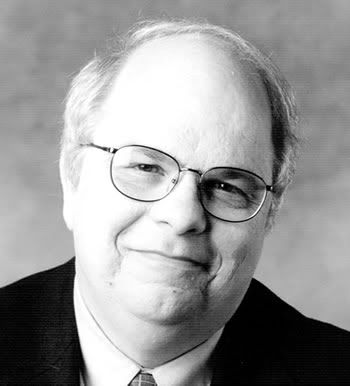|
Judicial Council Chief James Holsinger and $20 million of UMC Money
The litigation involved the sale in 1995 of a United Methodist Church (UMC) hospital in Lexington, Kentucky, and the disposition of the $20 million in proceeds. The hospital's trustees refused to hand over the assets to the owner, the UMC in Kentucky. Instead, the self-appointed trustees, calling themselves the Good Samaritan Foundation (GSF) placed the funds under their sole control and withheld the money from the church for five years. The Kentucky Annual Conference commenced a lawsuit against GSF which then cross-sued the General Board of Global Ministries (GBGM) bringing them into the case. The two church organizations were forced to engage in a long and costly lawsuit to find out where the money was and to regain its property for the Annual Conference. Holsinger became a GSF trustee in July 2000, joining in the lawsuit against his own church. According to several individuals intimately acquainted with the litigation, Holsinger actually became the driving force in the prolongation of the lawsuit. Shortly after GSF lost in court for the second time in 2006, Holsinger stated that the GSF trustees, which he chaired, would persist in its legal battle. In a stunning denunciation of his own church, Holsinger publicly stated his personal belief that the UMC was "only interested in the Foundation's money, not its cause" [health care for the poor and disadvantaged]. It was only when Holsinger was named as Surgeon General that the litigation came to an abrupt halt. Within a matter of days after his May 24, 2007, nomination, Holsinger resigned from the GSF trustees and the lawsuit, indicating that to continue would be incompatible with an appointment as Surgeon General. Within a mere two weeks, the suit was finally settled -- after over seven years! What might have motivated Holsinger to be a part of long, costly litigation against his own church? Following the money offers insight. From July 1997, through June 2006, the GSF and a corporate subsidiary dispersed $8,430,363 in grants -- of which $5,314,670 (63 percent) was given to University of Kentucky (UK) programs in medicine, nursing, dentistry, and public health. This included endowing two academic chairs valued at a million dollars each -- one in nursing and the other in public health. These endowed chairs and several million in other gifts were awarded while Holsinger was fundraising for these UK programs in his job as Chancellor of the Chandler Medical Center of UK from 1994 through 2003. The grants continued to flow after he left the position of Chancellor, while he continued as a GSF trustee until May 2007. The GSF's contributions to UK medical and its related schools have been so significant that the foundation is listed on the highest tier of honored benefactors to the university, along with major corporations such as Alcoa, DuPont, IBM, and the RJ Reynolds Tobacco Company. What makes the GSF awards to UK more remarkable is that they were awarded in contradiction to the foundation's own standards of grant-making. According to the grant policy guidelines of the GSF, "[m]ajor organizations" such as "[h]ospitals, [c]olleges and [u]niversities are not eligible as a general statement," although exceptions could be made by the trustees. The exception in this case became the rule when it came to UK. In addition, for more than a decade the return on the investments of the foundation was dismal. In May, 2005, GSF admitted in a letter to making poor return on the assets and to conflicts of interest by some of the trustees. Three GSF trustees had been involved in managing the assets of GSF while serving on the board. The church representatives told the GSF that it was "unconscionable" that after a decade the funds were not being professionally managed by experts who had no personal connection with the board. Did Holsinger ever inform his fellow members of the Judicial Council that he was involved in a lawsuit with the Kentucky Annual Conference and GBGM? Even more to the point, we are told by persons attending the 2004 General Conference that he did not disclose to the Conference his involvement in the lawsuit and his potential for conflicts of interest with the Kentucky Conference and GBGM if elected. Rev. Andrew J. Weaver, Ph.D., is a United Methodist minister and research psychologist who has written extensively on the role of clergy in preventive mental health care. He lives in New York City. He has co-authored 14 books including: Counseling Survivors of Traumatic Events (Abingdon, 2003), Reflections on Grief and the Spiritual Journey (Abingdon, 2005), Counseling Persons with Addictions and Compulsions (Pilgrim, 2007), and Connected Spirits: Friends and Spiritual Journeys (Pilgrim, 2007). Lawrence H. McGaughey, Esq., is an attorney practicing law in New York City with specialties in real estate, trusts and estates, and not-for-profit organizations. He has represented many United Methodist churches and organizations and is the Chancellor of the New York Annual Conference of the United Methodist Church. Any views stated in this article are personal and are not intended to represent the views of any client.
Judicial Council Chief James Holsinger and $20 million of UMC Money | 1 comment (1 topical, 0 hidden)
Judicial Council Chief James Holsinger and $20 million of UMC Money | 1 comment (1 topical, 0 hidden)
|
||||||||||||
| ||||||||||||




 print page
print page